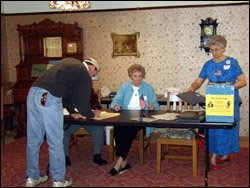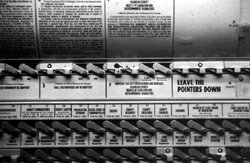Remembering the SAAB 96
 |
| Not our SAAB, but one like it - same color - no roof rack. |
Don't get me wrong. I loved the car too and we had many happy trips in New England. It was the essence of a "touring car", comfortable to ride inside, with a feeling of safety that our previous VW bug "Xenophon" could not provide, and with a reliability that the Oldsmobile F85 station wagon "Hog" failed to deliver. There were lots of stories associated with each of those other cars, but with the SAAB 96 - which we never named - it felt that we had finally "arrived" in a vehicle that reflected our burgeoning personalities as young, rebellious, serious students of life. It was a car designed by geeky Swedish engineers who seemed to understand that an automobile's personality was a gift to the drivers.
On one trip, down to North Carolina School of the Arts, we picked up Judith's sister Margot and her friend Tommy Hulse - who later earned fame playing the part of Mozart in "Amedeus". Tommy was so impressed with the car as we drove north. He watched me shift the car with its egg-beater gear shift that stuck out of the steering shaft - free wheeling, allowing us to coast down the hills, never using the clutch - and spontaneously proclaimed "What a wonderful car!" Ah, music to our ears as proud owners, and it was true. The insides were spartan but with just enough engineering panache' to make one feel like the car was designed for humans. The front seats were angled slightly towards the center to provide more leg room. There were little buckets clipped in the foot well for trash. The seats adjusted easily. The floor was absolutely flat. The rear seats folded down so there was access to the trunk and more cargo room (we slept in the car overnight more than once on long trips - often while one or the other continued to drive). One felt you were driving a flying machine instead of a car. Everything seemed to have a more reasonable design, including the hood, which opened backwards so that, if covered with snow, the load would fall off in front of the car when inspecting the engine.
And then there was its revolutionary front wheel drive: a novelty at the time. We lived on a back road in Southern Vermont that was seldom plowed in the winter. Driving down the mountainside after a snow the car cut a path like a duck through water, waves parting to either side in a spray of white. It's a memory I'll never forget. Or when we visited a friend who lived in a holler in Kentucky: We had to drive up a creek in the middle of the night that was - in places - about a foot deep to reach her house. We were following penciled directions sent to us in a letter. Judith was 8 months pregnant with our first child. We paused, wondering if we'd made a mistake, since there were no signs on the road that now ended at the creek. We both gulped, then drove on up the creek for several miles. The SAAB 96 handled it remarkably well, spraying water along the sidewalls, never hesitating, the front wheels finding their track beneath the rushing stream. Our friend later told us she'd lost a couple of cars in that creek. This knowledge affirmed our faith in our magnificent SAAB 96.
We'd purchased the car for $3700 with the trade-in of the Oldsmobile "Hog", whose transmission had failed and whose floor boards had rusted through in Vermont. We'd bought the SAAB back in Munster, Indiana from the only SAAB dealer in the state. (The Hog was still in his used car lot five years later when we passed by.) It was the car of our dreams and we were convinced that it would be the last car we would ever buy.
Of course, we were naive', both 22, and we thought of cars not as machines but as inventions designed for the ages. We also bought a heavy-duty steel roof-top cargo basket that was our best investment. (Great for hauling firewood). We also ended up carrying twenty feet of logging chain and a ten gauge shotgun (inherited from Judith's father) in the compartment under the back seat. And some metric wrenches and a couple of screw drivers in the pouch that was designed for the wheel jack. These were essentials for us during that time living in rural Vermont while we attended college. And we used them all.
As luck would have it, Indiana also killed the SAAB 96. After college we moved to Washington, DC, and then to Northern Indiana to live on a little farm. The only mechanic in LaPorte, Indiana who would work on it was employed at the local tractor dealership outside of town. The odd little problems that a car develops over time started to create serious difficulties for us with a new baby - such as the time that the carburetor float developed a pin hole and would fill with gas and then choke out the engine. Ah, the humiliation of calling my father in the middle of the night to come haul us home - baby wailing in the back seat. My dad never said a mean word about the car, but there was a sadness in his eyes as he hooked the logging chain to the undercarriage and dragged us back to the farm. It took the tractor mechanic more than a week to figure out what was causing the problem and he was ecstatic that he'd diagnosed it and fixed it so easily. He was like a kid who had worked on Lionel electric train sets all his life, and had suddenly been promoted to Swedish Rocket Engineer.
The mechanic was so interested in the car that he special-ordered the factory manual for tuning the engine. Unfortunately, all the measurements were metric and the manual was in Swedish, so that when he adjusted the valves, he kept tightening them too much, and we went through a series of burned valves before I realized what his problem was. The SAAB 96 -- our dream car - "The Last Car We Would Ever Own" - was going to achieve its title simply because - if we didn't do something soon -- it would bankrupt us with repairs.
Eventually we were forced to trade it in for a new VW Rabbit - a mistake, but one that we lived with until it rusted out through the floor boards. It was a sad day to say goodbye to the SAAB 96 in South Bend, Indiana. Then, about two years later, I remembered that I'd left a 10 gauge shotgun under the rear seat along with the logging chain. I never forgave myself and I wondered if it were still there, hidden out of sight from its new (imagined) owner.
The SAAB 96 was a great car for a young family: we'd hauled trailers with it, dragged birch logs down the icy roads for firewood, slept in the back during cross-country trips, crashed it at 40 miles per hour without injuring any passengers, and generally learned a lot about owning cars. Judith still remembers it with fondness and pride.
We've long ago stopped seeing old SAABs of that era here in California. There were never that many out here anyway. The later models held no interest for us. They cost far too much, and seemed to be designed for yuppies. They were too plush, too artificially "modern". By comparison, the SAAB 96 was like a car that one wanted to hand down to your children and your children's children. It wasn't "retro" because it was exactly what it meant to be: basic transportation designed with a utilitarian bent for practical people.
Since the SAAB days we've owned a lot of cars: 3 VW bugs, 2 VW vans, a VW Rabbit, a Datsun station wagon, an old MGB, a Honda CIVIC, a Mercury minivan, an Isuzu Trooper, a couple of Toyto Corollas, two Toyoto Prius, and one leased Subaru Outback. And I've probably missed remembering at least one more. Just listing out all the cars leaves me with a sense of guilt for buying so many vehicles (imagine the carbon we've pumped into the air over the years). But we've always bought "used", and I suppose that's some indication of our environmental consciences and our financial priorities.
Still, I have these dreams - nighttime revelries actually - of returning to my parents' two garage. In this dream I open the door and discover all the cars that I and my family have ever owned. They're all jammed in there somehow, as the garage extends mystically back into an ever deepening space. Every car. Chryslers, and Dodges, and Oldsmobiles, and Buicks, and more modern vehicles, parked side by side. The smell of engines, and the feel of cold enameled metal penetrates my senses as I slip sideways between their silent hulks.
And in this dream I always head over to the little light gray SAAB 96. It's exactly as I remember it, complete with the dented front fender and the rear bumper that is slightly out of alignment from dragging a ten foot long birch log along the ice.
I slip behind the wheel, and somehow manipulate it out of the garage. I start down the road, convincing myself that the burned out valve that has left the car with such poor acceleration and compression, can be fixed once and for all.
And then, I pull the car over to the side of the road, lower the back seat, and take a nap as the sun beams through the rear bubble windows, with the leaves of trees swaying above my head. I don't nap long. Just a little cat nap, the smell of the seats mixing with the smell of autumn that streams through the cantered back side windows.
And then something occurs to me. Is the ten gauge shot gun still under the rear compartment?
I wonder.
I get out of the car and start to lift the rear seat to see.
But then I wake up.
RIP SAAB.









